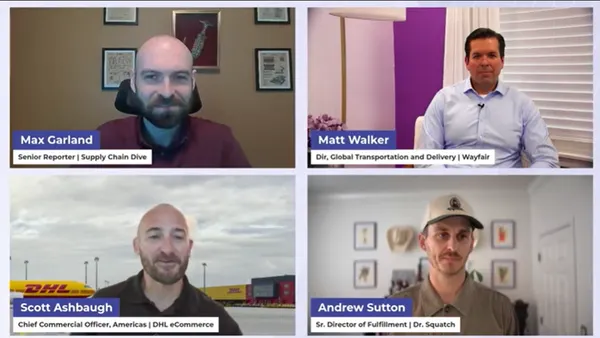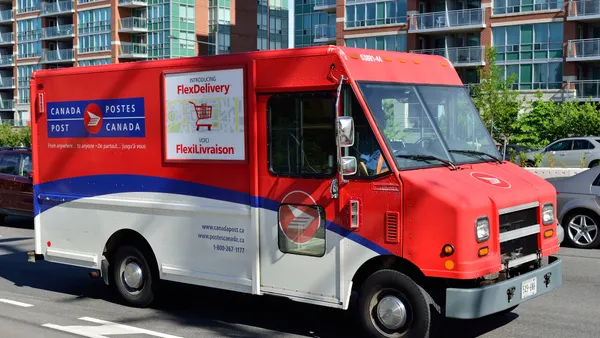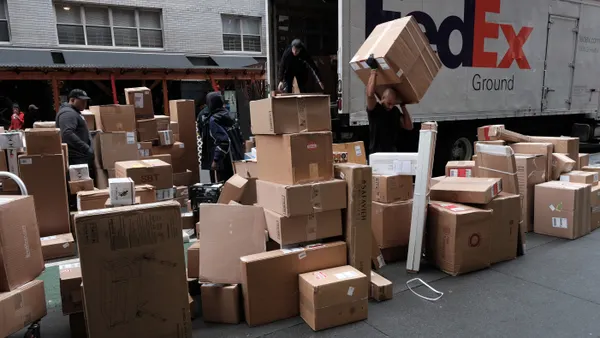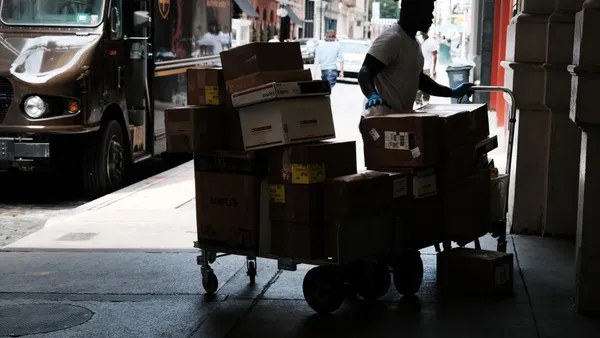Dive Brief:
- TuSimple is planning a fully driverless "demonstration" in 2021 as it expands the company's freight deliveries in the U.S. and China, according to a report from Fleet Owner.
- The company's Chief Product Officer Chuck Price told Fleet Owner in an interview these demonstrations, as opposed to test runs, would be real commercial freight deliveries from which TuSimple would pocket a portion of the revenue. While the company has a motor carrier they plan to work with for the 2021 deliveries, Price said they are unable to name any names.
- The ultimate goal, TuSimple CFO Cheng Lu told Fleet Owner, is to get the driver "out of service," meaning they could be asleep in the cab or otherwise disengaged while the truck is running, and eventually "out of the equation" entirely. He said allowing the truck to continue running while the driver was resting or sleeping could improve turnover rates in the industry and road safety, as drivers would be more alert if and when they needed to take the wheel.
Dive Insight:
Currently, TuSimple's trucks operate at Level 4 autonomy, meaning they can navigate a variety of environments, weather and safety conditions without the assistance of a driver. However, legal requirements in most states mandate a driver be present in the vehicle during all operations.
TuSimple submitted documentation of its self-driving safety technologies and procedures to the National Highway Traffic Safety Administration (NHTSA) this year, alongside other industry competitors including Starsky Robotics, Uber and Waymo. While the filing does not amount to a federal endorsement of the firm's plan, the transparency involved in doing so can help secure pilot operations with potential customers in states that currently allow autonomous vehicle testing on roads and highways.
One such state is Arizona, where TuSimple has run real-world delivery pilots with UPS, which holds a minority stake in the company, and the U.S. Postal Service, on routes between Phoenix and Tucson.
Waymo is operating in Arizona as well. While the company has traditionally focused on driverless consumer vehicles and ride-sharing, it recently announced it is expanding into Class 8 trucks and last-mile delivery vehicles. It is currently testing its freight-hauling capabilities on a highway route to and from a Google data center in Atlanta, Georgia.
Likewise, Amazon, Volvo and other major companies are engaged in pilots of their own across the country.
Across the driverless trucking industry, the enabling technology is hailed as a way to simultaneously address the current driver shortage and the increase in labor costs carriers face as historically low unemployment and high demand makes hiring more competitive.
While fully autonomous trucking operations are still far from the mainstream, NHTSA recognition of companies' safety and operations plans, coupled with expanding pilots, show ongoing progress toward at least a partially driverless future.














